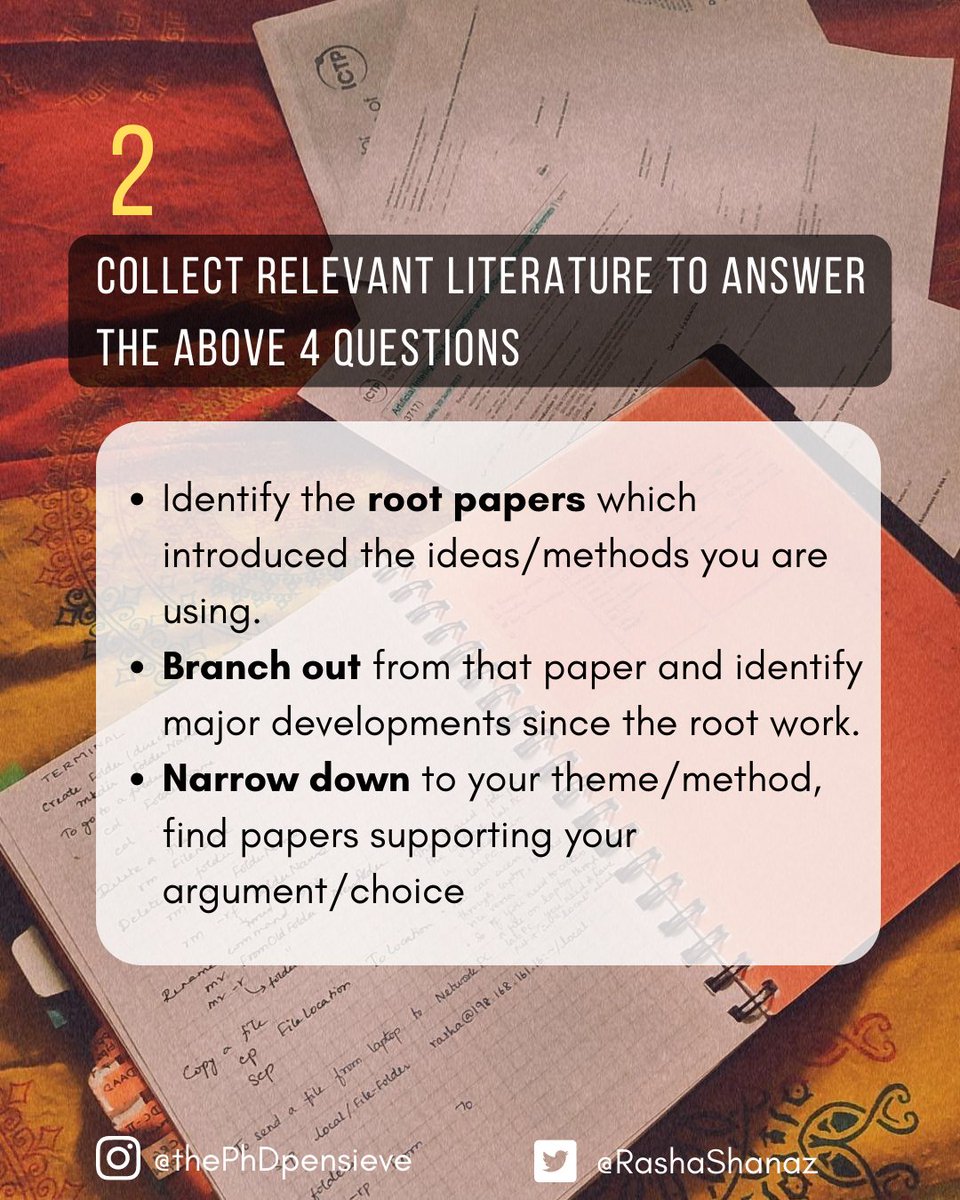
PhD and #planning are inseparable. But more often than not, it NEVER works!
Either we procrastinate till we fall into anxiety or overwork to the point of burnout.
Here's a little🧵for procrastination-proof planning!
#PhDlife #PhDchat #phdtips #AcademicTwitter
Either we procrastinate till we fall into anxiety or overwork to the point of burnout.
Here's a little🧵for procrastination-proof planning!
#PhDlife #PhDchat #phdtips #AcademicTwitter

Why planning has always been a tricky thing for me:
❌My plans are either too big & I get overwhelmed or too short & I lose the big picture.
❌they have no space for changes. One interruption can cause a domino effect & I'd feel like the whole plan is sabotaged.
❌My plans are either too big & I get overwhelmed or too short & I lose the big picture.
❌they have no space for changes. One interruption can cause a domino effect & I'd feel like the whole plan is sabotaged.
In my journey to build a routine, I realised these mistakes in my planning and found little ways to improve them.
📝Here's what I've learnt:
(more detailed explanations below⬇️)

📝Here's what I've learnt:
(more detailed explanations below⬇️)


1️⃣𝗣𝗹𝗮𝗻 𝗳𝗼𝗿 𝘀𝗵𝗼𝗿𝘁𝗲𝗿 𝘁𝗶𝗺𝗲𝘀. Keep the time line realistic
- My sweet-spot is 3months neither too small for one complete project nor too large to lose focus.
- My sweet-spot is 3months neither too small for one complete project nor too large to lose focus.
2️⃣𝗗𝗲𝗰𝗶𝗱𝗲 𝗼𝗻 𝗼𝗻𝗲 𝗴𝗼𝗮𝗹 for this period. Make sure that your goal is 'SMART': Specific, Measurable, Achievable, Realistic and Timely.
- My goal now is to submit a conference paper by Mid-November.
- My goal now is to submit a conference paper by Mid-November.
3️⃣𝗗𝗲𝗳𝗶𝗻𝗲 𝘁𝗵𝗲 𝗺𝗮𝗷𝗼𝗿 𝘀𝘁𝗲𝗽𝘀 𝗮𝗻𝗱 𝗺𝗶𝗹𝗲𝘀𝘁𝗼𝗻𝗲𝘀 leading to the goal. Don't break it down too small.
Because you can't know all the details 3 months ahead and this will give you breathing room to improvise the plan as you go.
Because you can't know all the details 3 months ahead and this will give you breathing room to improvise the plan as you go.
4️⃣Categorize the steps so that you can 𝗯𝗮𝘁𝗰𝗵 𝘁𝗵𝗲 𝘁𝗮𝘀𝗸𝘀 into similar ones.
- for me literature collection, coding and writing are best when done in long uninterrupted batches than in alternating sessions.
- for me literature collection, coding and writing are best when done in long uninterrupted batches than in alternating sessions.
5️⃣Mark unavoidable events that will impact your plan/workflow. 𝗠𝗮𝗸𝗲 𝗿𝗼𝗼𝗺 𝗳𝗼𝗿 𝘂𝗻𝗲𝘅𝗽𝗲𝗰𝘁𝗲𝗱 𝗰𝗵𝗮𝗻𝗴𝗲𝘀 to the plan. Don't make it too rigid.
Anything from going home for a long weekend to a workshop at department
Anything from going home for a long weekend to a workshop at department
6️⃣𝗖𝗿𝗲𝗮𝘁𝗲 𝗮 𝗚𝗮𝗻𝘁𝘁 𝗖𝗵𝗮𝗿𝘁 to visualize your goals and the time you have to finish them.
If you'd like a nice functional template, let me know in the comments ♥️ I'll post a link to my downloadable Gantt chart sample!
If you'd like a nice functional template, let me know in the comments ♥️ I'll post a link to my downloadable Gantt chart sample!
7️⃣ Set a specific time to work on it. Helps you build a routine and also easy on your brain - don't put that poor thing to too much decision making in a single day!
And finally...
8️⃣Create weekly milestones to
keep up with progress & to
𝗰𝗲𝗹𝗲𝗯𝗿𝗮𝘁𝗲!
Routines don't work without rewards! Also, delay your reward till you actually finish that milestone.
8️⃣Create weekly milestones to
keep up with progress & to
𝗰𝗲𝗹𝗲𝗯𝗿𝗮𝘁𝗲!
Routines don't work without rewards! Also, delay your reward till you actually finish that milestone.
These are tips I've been following since August (and some of it are inspired by this amazing course called Learning how to Learn on Coursera. Check it out!)
➡️ Do you think this could work for you too? 😁 What would you change in your planning?
➡️ Do you think this could work for you too? 😁 What would you change in your planning?
♥️If you found this helpful, please consider retweeting the first tweet. It will help this reach a wider audience!
Happy planning, y'all!
Happy planning, y'all!
• • •
Missing some Tweet in this thread? You can try to
force a refresh











